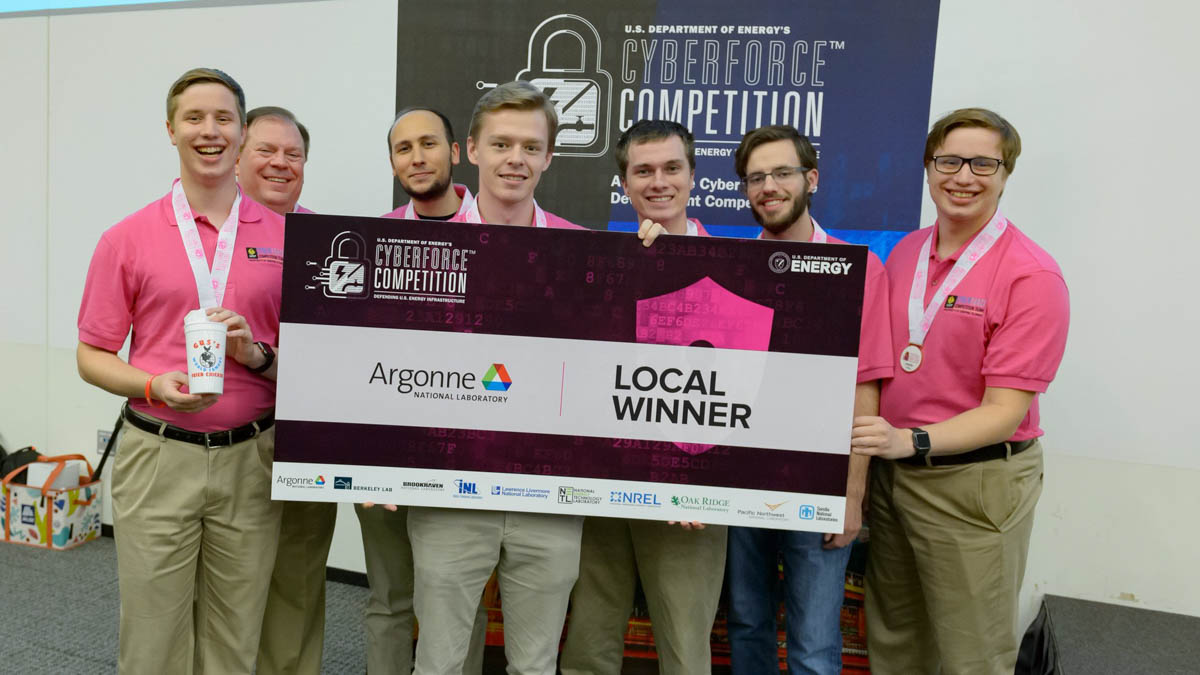UCF Takes 2nd Nationally in Department of Energy’s CyberForce Competition

Competing against more than 100 of the top collegiate cybersecurity teams in the nation, UCF took 2nd place nationally in Saturday’s fifth annual CyberForce Competition sponsored by the U.S. Department of Energy.
UCF’s Collegiate Cybersecurity Competition team, known as Hack@UCF, also took 1st place in its daylong DOE regional matchups at the Argonne National Laboratory near Chicago while the simultaneous national event was held at nine other sites around the country involving 105 teams. The University of Maryland, Baltimore County, was declared the national champion.
At Argonne, UCF defeated 23 other competitors including schools such as the University of Illinois, Purdue University and University of Houston.
UCF’s team is comprised of six College of Engineering and Computer Science students: digital forensics graduate students and Austin Sturm ’18 and Michael Roberts ’19 ; computer science majors Andrew Hughes and Alexander Cote; computer engineering major David Maria, and information technology major Martin Roberts. Their coach is Tom Nedorost, associate instructor of computer science.
All the team members also belong to the Collegiate Cyber Defense Club @ UCF, which was formed in 2012 and started competing nationally in 2013.
Hack@UCF won three back-to-back championships in the National Collegiate Cyber Defense Competition in 2014, 2015 and 2016, and also won 1st in the Department of Energy CyberForce Competition last year.
Nederost said the team has competed the past three years at Argonne, the host of the tournament, and likes to go head-to-head with other universities there.
“We get to meet teams from many midwestern schools that we don’t typically compete against in other competitions,” he says.
The DOE tournament focuses on the defensive and hardening nature of energy infrastructures. Participating teams competed against each to build networks that can withstand attacks to steal data, deface websites and wipe out critical systems from professionally executed cyberattacks. Their cybersecurity activities were tested in methods, practices, strategy, policy and ethics.
Story by Gene Kruckemyer ’73, UCF Today